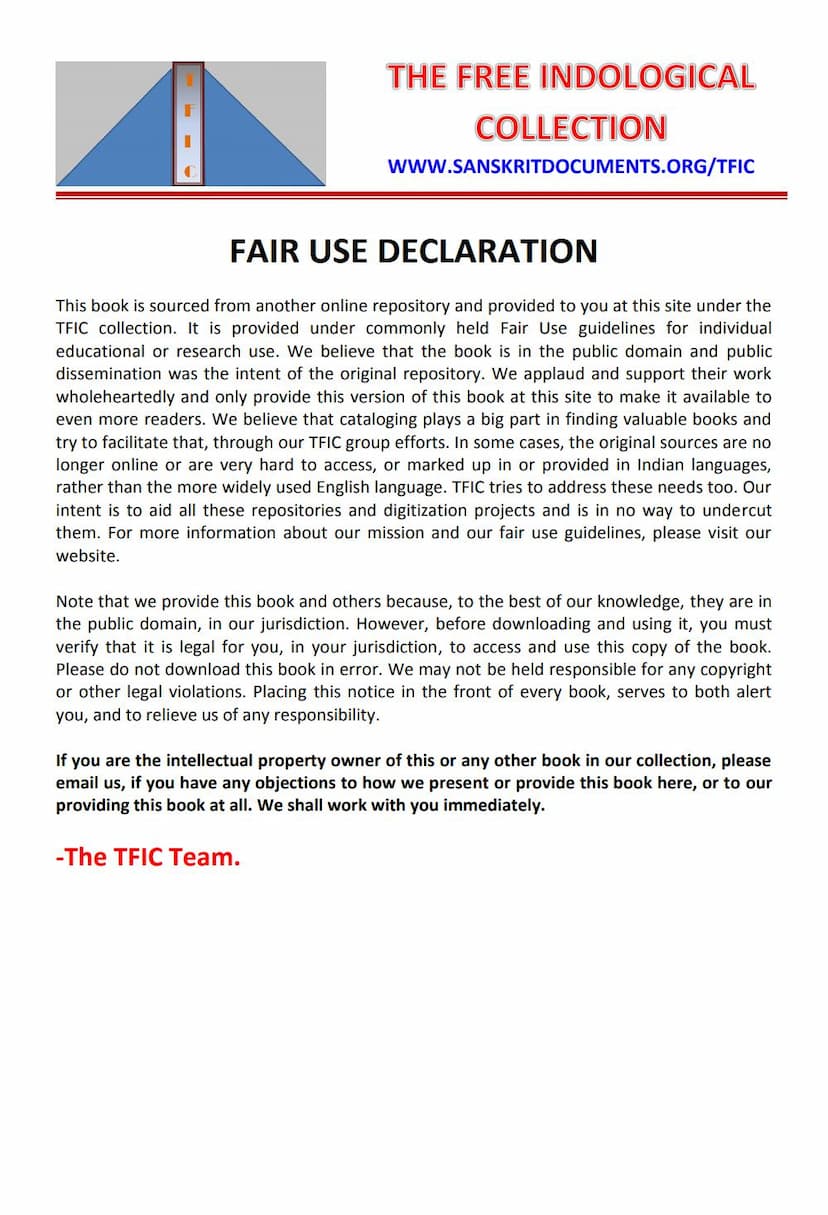Mahavira Prasad Dwivedi Aur Unka Yuga
Added to library: September 2, 2025

Summary
This book, "Mahavira Prasad Dwivedi aur Unka Yuga" (Mahavir Prasad Dwivedi and His Era) by Dr. Udaybhanu Singh, published by Lucknow University, is a comprehensive study of Mahavir Prasad Dwivedi and the literary period named after him. The book aims to provide a critical and analytical evaluation of Dwivedi's significant contributions to the development and modernization of Hindi language and literature.
Here'The book's central argument is that Mahavir Prasad Dwivedi was a pivotal figure who ushered in a new era in Hindi literature. The author highlights Dwivedi's multifaceted role as an editor, linguist, critic, essayist, poet, and educator, all of which contributed to shaping modern Hindi.
Key themes and contributions discussed in the book include:
- Modernization of Hindi Language: Dwivedi is credited with establishing Khari Boli (a dialect of Hindi) as the standard language for both prose and poetry. He refined its grammar, vocabulary, and style, making it suitable for modern literary expression and a national language. The book details his efforts in standardizing Hindi, purifying its vocabulary from excessive Sanskrit or foreign influences, and promoting clarity and simplicity in writing.
- The "Dwivedi Yug" (Dwivedi Era): The period from 1901 to 1920 is recognized as the "Dwivedi Yug" due to his immense influence. This era witnessed significant growth and refinement in Hindi literature, moving away from the stylistic excesses of the Riti Kal (period of classical Hindi poetry) towards a more rational, progressive, and socially conscious literature.
- "Saraswati" Editing: A major part of Dwivedi's contribution was his long tenure as the editor of the prestigious Hindi magazine "Saraswati." The book elaborates on how he transformed "Saraswati" into a platform for literary innovation, a training ground for new writers, and a disseminator of knowledge across various fields, including science, history, and social reform. He actively promoted writers like Maithilisharan Gupt, Ayodhya Singh Upadhyay, and others, guiding them in language, theme, and style.
- Literary Criticism: Dwivedi was a pioneering figure in establishing systematic literary criticism in Hindi. The book examines his critical approach, which often involved a blend of traditional Indian aesthetic theories and modern analytical methods. He focused on the substance of literary works, the author's intent, and the social relevance of literature.
- Essay Writing: Dwivedi elevated the status of the essay in Hindi literature, using it as a medium to discuss a wide range of topics, from social issues and national progress to linguistic debates and literary analysis. His essays were known for their clarity, intellectual rigor, and persuasive style.
- Poetry and Literary Reforms: While not a prolific poet himself, Dwivedi's influence on poetry was immense. He encouraged poets to adopt Khari Boli for their verses and to engage with contemporary social and national themes, moving beyond the traditional focus on courtly love and ornamentation. He also played a role in promoting new metrical forms and lyrical styles.
- Social and National Consciousness: The book underscores how Dwivedi's writings and editorial policies fostered a sense of national consciousness and social reform among Hindi writers and readers. He advocated for social justice, women's education, and national self-reliance.
- Biographical and Character Analysis: The book also delves into Dwivedi's personal life, tracing his journey from humble beginnings to becoming a towering literary figure. It analyzes his personality, highlighting his integrity, dedication, intellectual curiosity, and unwavering commitment to Hindi and national causes. His interactions with fellow writers and his role in shaping literary trends are explored in detail.
In essence, "Mahavira Prasad Dwivedi aur Unka Yuga" portrays Mahavir Prasad Dwivedi not just as a writer but as a cultural force who synthesized traditional wisdom with modern sensibilities, thereby laying the foundation for a vibrant and dynamic Hindi literature that continues to evolve today. The book provides a detailed historical and literary context, making a strong case for Dwivedi's indispensable role in shaping modern India's literary landscape.